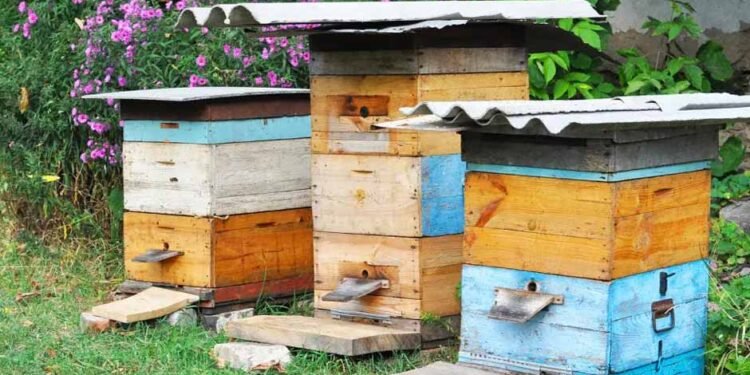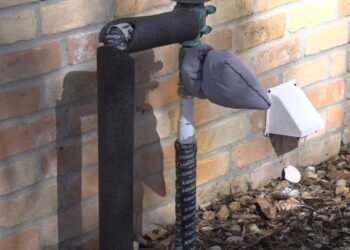In the world of gardening and home sustainability, backyard beekeeping has buzzed its way into the hearts of many. It’s not just about the allure of homemade honey; it’s about promoting biodiversity and supporting vital pollinators.
But, as with any hobby involving wildlife, the question arises: Is backyard beekeeping safe? This article delves into the essentials of backyard beekeeping, outlining the safety measures, benefits, and considerations to ensure both beekeepers and their neighbors live in harmony.
Understanding Backyard Beekeeping
Backyard beekeeping involves maintaining bee colonies in urban or suburban areas. It’s a practice that requires knowledge, commitment, and care. Before diving in, it’s crucial to understand the behavior of bees, local regulations, and how to manage hives responsibly. This foundation ensures a safe and rewarding beekeeping experience.
The Safety of Beekeeping for Beginners
For those new to the craft, safety is a prime concern. Fortunately, with the right approach, backyard beekeeping is very safe. It starts with education: understanding bee behavior, recognizing when bees feel threatened, and knowing how to interact with them reduces the risk of stings and promotes a healthy coexistence.
Choosing the Right Location in Your Backyard
Not all backyards are created equal for beekeeping. The ideal location is away from foot traffic, with hives facing east or southeast to catch the morning sun. Providing a water source and ensuring hives are shielded by barriers can prevent bees from becoming a nuisance to neighbors and passersby.
The Importance of Bee Behavior Knowledge
Understanding bee behavior is key to safe and successful backyard beekeeping. Here’s why it’s so important:
- Reduces Fear: Knowing how bees act and react helps you feel less afraid. When you understand that bees don’t want to sting you because they die if they do, you approach beekeeping with more confidence.
- Improves Safety: By learning bee signals, you can tell when bees are calm or feeling threatened. This knowledge lets you work with them safely, reducing the chance of getting stung.
- Enhances Bee Health: Understanding what’s normal for your bees helps you spot when something’s wrong. Whether it’s disease or stress, early detection can save your hive.
- Supports Hive Success: The better you understand your bees, the better you can care for them. This means your hive is more likely to thrive, producing more honey and growing stronger.
Knowledge of bee behavior isn’t just beneficial; it’s essential for anyone stepping into the world of backyard beekeeping.
Protective Gear: Your First Line of Defense
One of the most straightforward answers to the safety question is protective gear. Wearing a bee suit, gloves, and a veil can prevent stings during hive inspections and honey harvesting. This gear is essential, especially for beginners, to feel confident and secure when working with their bees.
Managing Hives to Ensure Neighborhood Safety
Responsible hive management extends beyond the beekeeper’s backyard. It involves regular inspections to check for diseases or pests, proper spacing of hives to avoid overcrowding, and ensuring bees have adequate resources to prevent them from seeking food in neighboring areas. Transparent communication with neighbors can also alleviate concerns and promote understanding.
Legal Considerations and Local Ordinances
Navigating legal considerations and local ordinances is a crucial step in backyard beekeeping. Here’s what you need to know:
- Check Local Laws: Before you start, look up your city or town’s rules on beekeeping. Some places have specific requirements about where you can place hives or how many you can have. This ensures you’re not breaking any laws.
- Neighbor Notifications: In some areas, you might need to tell your neighbors about your beekeeping plans. This is about being a good neighbor and avoiding surprises. It also gives you a chance to address any concerns they might have.
- Registration Requirements: Many locations require beekeepers to register their hives. This helps in managing bee health in the community and can provide you with support and resources.
- Understand Zoning: Zoning laws can affect where you can keep bees. Make sure your property is zoned in a way that allows beekeeping activities.
The Rewards of Beekeeping: Beyond Safety
Beyond the safety measures, backyard beekeeping offers immense rewards. It supports the local ecosystem by aiding in pollination, provides a fascinating hobby that connects people to nature and yields natural honey and beeswax products. The satisfaction of contributing positively to the environment while enjoying the fruits of your labor is unparalleled.
Takeaway
Backyard beekeeping is a safe and enriching activity when approached with care, knowledge, and responsibility. By understanding bee behavior, choosing the right location, wearing protective gear, and adhering to local laws, beekeepers can ensure their hobby is safe for themselves, their bees, and their community.
The journey of backyard beekeeping is not just about managing hives; it’s about fostering a harmonious relationship with nature right in your backyard. Embrace the adventure with preparedness and respect for these remarkable creatures, and the question of safety will turn into a testament to the joys of beekeeping.












